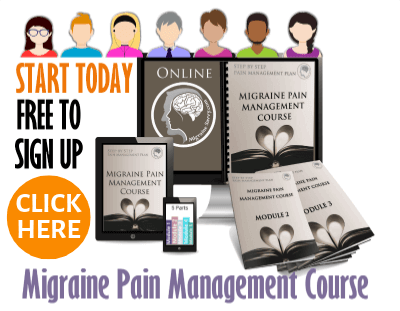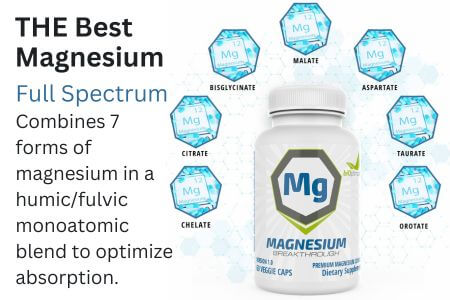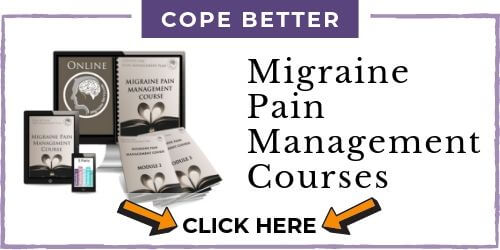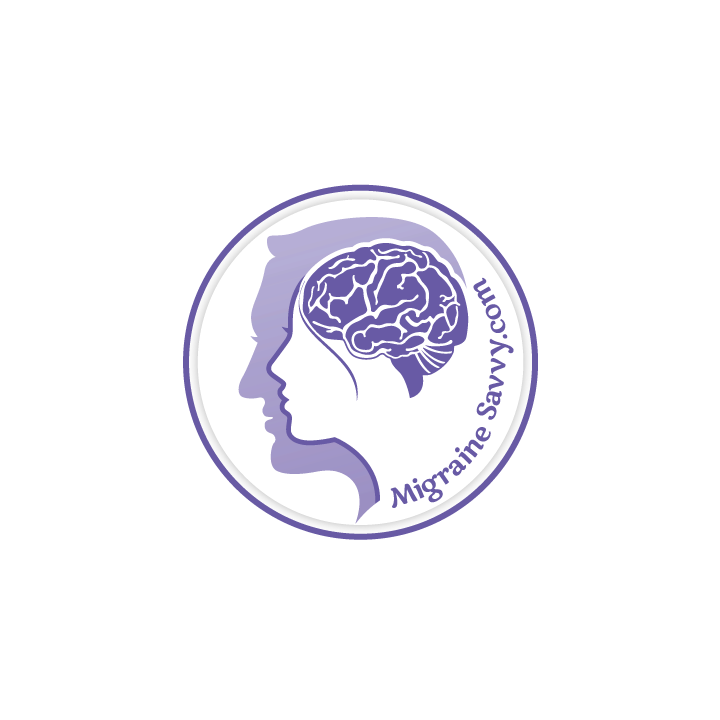- Home
- Medications
- Medications for Migraines
COMPLETE MAGNESIUM SUPPORT
My Top Choice - Magnesium Breakthrough - The ONLY supplement with all 7 essential magnesium types in one formula. Most only have 1-2 types, leaving you deficient.
Medications for Migraines: Are You Taking the Right Ones?
The journey to finding effective medications for migraines is often filled with trial and error, frustration, and moments of despair. And as someone who has lived with migraine headaches for over 30 years, I know how life-altering they can be.
Like many migraine sufferers, I’ve experienced the fear of trying new treatments and the disappointment of medications that didn’t work - or worse, made things harder to bear. But I’ve also discovered that the right information and tools can make all the difference.

Below I’ll share insights into the best options available today for managing migraine attacks, from FDA-approved treatments to alternative therapies. Whether you’re just starting your journey or still searching for relief, I hope my experience can guide you toward better days.
Contents
- Understanding Migraine Treatment and Medications
- Medications for Migraines: What You Need to Know
- Avoiding Common Pitfalls: Overuse and Off-Label Medications
- The Problem with Rebound Headaches
- Expert Tips for Managing Migraine Medications
- Alternative Approaches for Migraine Relief
- Creating an Effective Migraine Treatment Plan
- Download Your Free Migraine Medication Tracker
- Recent Articles
Understanding Migraine Treatment and Medications
Migraines are more than just headaches - they are a complex neurological condition that affects over 11.1% of the US population and approximately 1 billion people globally. Despite being so common, understanding and effectively treating migraine has been slow due to outdated misconceptions. [2,3]
Historically, migraine was thought to result from vascular issues or stress intolerance. Treatments often relied on repurposed medications developed for other conditions, such as epilepsy or depression, with limited effectiveness on pain reduction. [4]
Recent breakthroughs in migraine research have transformed how we approach treatment. Today, there are medications specifically designed to target the root causes of migraines, offering new hope for relief. Whether you’re seeking acute treatments for immediate pain relief or preventive options to reduce the frequency of attacks, understanding your options is critical.
So now, let's break down everything you need to know about medications for migraines, from FDA-approved drugs to natural alternatives.
Medications for Migraines: What You Need to Know
Types of Migraine Medications
Finding the right migraine treatment starts with understanding the two primary types of medications:
- Acute Treatments – Taken at the onset of a migraine to alleviate pain and symptoms.
- Preventive Medications – Taken daily to reduce the frequency and severity of migraines.
FDA-Approved Acute Treatments
Out of hundreds of available medications, only seven drugs are FDA-approved for acute migraine treatment. These include:
- Triptans: Imitrex (Sumatriptan), Maxalt (Rizatriptan), Zomig (Zolmitriptan), and others. Click here for the whole list of triptans.
- Over the Counter (OTC) Options: Motrin, Excedrin Migraine®, and Advil Migraine Pain®.
Triptans are highly effective for aborting pain during an attack, especially when taken at the first sign of symptoms. Research also suggests that combining Sumatriptan with Naproxen (500 mg) can yield even better results.
MORE IDEAS YOU'LL LOVE
MIGRAINE PAIN MANAGEMENT COURSE
Today I'm sharing the most essential things you need to know to keep your sanity. It's free to enroll so you can learn to manage the pain right now... continue reading
Preventive Medications for Migraine Management
The FDA has approved four medications for migraine prevention:
- Propranolol (Inderal®)
- Timolol (Blocadren®)
- Divalproex Sodium (Depakote®)
- Topiramate (Topamax®)
Preventive treatments work best when taken consistently at the same time daily. Keeping a medication tracker and recording side effects can help identify the right option for you.
My #1 Choice in Magnesium Supplements
Avoiding Common Pitfalls: Overuse and Off-Label Medications
While off-label medications can sometimes be effective, their use should be closely monitored due to the potential for side effects. For instance, some off-label options like antidepressants or calcium channel blockers can be helpful but require careful oversight.
Additionally, long-term use of drugs like Ibuprofen or Naproxen can cause serious side effects, such as kidney damage. Prioritize working with your doctor to find treatments tailored to your specific needs.
Overuse is a common problem that mainly occurs because the medication DOES NOT WORK. So, in desperation you might take more to get the pain under control. This is NOT in your best interest.
The Problem with Rebound Headaches
Many Medications Can Cause Rebound Headaches
"Although headaches are natural, they are not necessary", argues David Buchholz, a professor at the Johns Hopkins School of Medicine. In his book Heal Your Headache: The 1-2-3 Program for Taking Charge of Your Headaches.
Buchholz suggests that severe migraine headache sufferers should avoid quick fix painkillers and highlights that many medications for migraines also cause rebound headaches.
He suggests a more holistic approach:
- minimize triggers like caffeine, perfumes, certain foods and
stress and, only for hardcore cases to use preventative medications such
as Triptans, Tricyclic Antidepressants, or Calcium Channel Blockers.
Remember that triggers can be delayed up to two or three days and can be the accumulation of a number of factors!
Buchholz believes that if you take this list of drugs more than three times a month you may be experiencing rebound headaches:
- "Caffeine-containing analgesics (Excedrin, Anacin, etc.)
- Butalbital compounds (Fiorinal, Fioricet, Phrenilin, etc.)
- Isometheptene compounds (Midrin, Duradrin, etc.)
- Decongestants (Sudafed, Tylenol Sinus, Dristan, Afrin, etc.)
- Ergotamines (Ergomar, Wigraine, Migranal and D.H.E. 45)
- Triptans (Imitrex, Amerge, Zomig, Maxalt and Axert)
- Opioids and related drugs (Tylenol with codeine, Percocet, Darvocet, OxyContin, etc.)"
Let's Recap...
While medications can provide relief, overuse of certain drugs can lead to rebound headaches - a cycle where frequent use causes worsening headaches. Common culprits include:
- Caffeine-containing analgesics: Excedrin, Anacin.
- Opioids: Tylenol with Codeine, Percocet.
- Triptans: Imitrex, Amerge, Zomig.
To avoid this, limit the use of acute medications to no more than 3 times per week. Work with your doctor to develop a migraine management plan that includes alternative therapies.
Expert Tips for Managing Migraine Medications
Acute Treatments
- Take medication at the first sign of a migraine.
- Use the right dosage to maximize effectiveness.
- Track how long it takes for the pain to subside and discuss with your doctor.
The goal is complete relief of pain and the accompanying symptoms. Feel free to use my symptom tracker journal to help with this task.
Make notes on how long it takes you to return to normal functioning and take them to your next Doctor visit.
Keep checking with your Doctor, there are new medications being developed much more often that you would think.
Some attacks are not eliminated with your abortive therapy alone. It might be useful to form a migraine headache new treatment plan and have an option B, if your medication does not work.
Talk to your Chemist or Pharmacist as well. Additional information will make a more effective and reliable pain management plan.
Preventive Medications
- Take them at the same time each day. Stick to a consistent schedule for taking preventive treatments.
- Keep a journal of medications tried and their side effects. It will help if it takes you a long time to find what works or need to change doctors. You can down the medication tracker I use - I find it helps a lot.
Click here to download and print the PDF for the medication tracker.
- Discuss new treatment options with your doctor regularly—there are frequent advancements in migraine medications.
Safe Medication Practices
- Always source medications from reliable providers to ensure safety and efficacy. You can buy a lot of things over the internet these days but... please always use a reliable source for your medications.
- Avoid self-medicating or increasing dosages without consulting your doctor or healthcare provider.
Alternative Approaches for Migraine Relief
Besides avoiding your environmental and food triggers, the most recent studies show that the best way to treat this condition is with a combination of traditional medications for migraines and alternative therapies like:
- Biofeedback and Relaxation Techniques: Helps reduce stress triggers.
- Vitamin Therapy: Magnesium and Riboflavin (Vitamin B2) have shown promise in reducing migraine frequency.
- Deep breathing and regular exercise: Improves overall health and reduces stress-related migraines.
- Professional Counseling: Learning new coping skills can make a significant difference.
Creating an Effective Migraine Treatment Plan
Managing migraines effectively requires a combination of the right medications, lifestyle adjustments, and a proactive approach. Start with FDA-approved options and complement them with alternative therapies to achieve better results. Track your symptoms, monitor medication effects, and regularly consult with your doctor to refine your treatment plan.
Download Your Free Migraine Medication Tracker
Ready to take control of your migraine management? Download my free Migraine Medication Tracker to help you record medications, side effects, and results.
A few more words of support...
Migraine treatment has come a long way, with tailored medications now offering relief for millions. Whether you’re managing acute attacks or preventing future episodes, staying informed is your best defense against debilitating migraine attacks. >> Join my mailing list
By combining the latest treatments with lifestyle strategies, you can take control of your migraines and reclaim your life. Here's a link to my course, the first module is FREE!
Medications for migraines are covered in detail in my course... here's the link
LOOKING FOR RELIEF ?
MIGRAINE PAIN MANAGEMENT COURSE
I have a step-by-step pain management plan in my course. The first module is free so you can learn to manage your attacks asap... continue reading
WANT MORE TIPS? Subscribe to my newsletter and follow along on Facebook and Pinterest for all of the latest updates.
MIGRAINE MEDICATIONS Related Articles
How to be more MIGRAINE SAVVY right now...
Medications for Migraines Refs:
1. Teh, Dawn (2022) HealthMatch.io. Available at: https://healthmatch.io/blog/guide-to-the-newest-fda-approved-medications-for-migraine
2. PubMed ( 2007) Migraine prevalence, disease burden, and the need for preventive therapy. Available at: https://pubmed.ncbi.nlm.nih.gov/17261680/
3. The Lancet (2016) Global, regional, and national burden of migraine and tension-type headache, 1990–2016: a systematic analysis for the global burden of disease study 2016. Available at: https://www.thelancet.com/journals/laneur/article/PIIS1474-4422(18)30322-3/fulltext
4. The Guardian (2021) Scientists who discovered migraine mechanism win £1.1m Brain prize. Available at: https://www.theguardian.com/science/2021/mar/04/scientists-discovered-migraine-mechanism-win-brain-prize


















